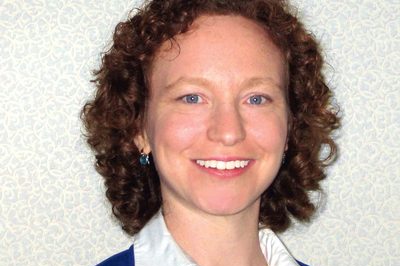Spring is here, a time of year that always makes me think of new beginnings (and not just because I have to start cleaning up the yard after winter’s neglect). Nine springs ago, my spouse and I were preparing to try and have a child — talking with lawyers, doctors and each other, and making our first (unsuccessful) attempt to get pregnant. Eight springs ago, we were getting ready for the arrival of our son, who was born in early summer. My thoughts are therefore turning back to those early days and the things I wish I had known — or knew but hadn’t yet taken to heart. Here are a few of them.
Remember you’re not the first. Out LGBT parents have been around since at least the 1970s. Parenting as a whole goes back, of course, as far as human history. (I suspect there’s a cave painting somewhere that shows a parent admonishing a child to eat dinner.) Even if you’re the first LGBT parent in your community, you’re not alone in the grander scheme of things.
Yes, many of us start our families in different ways, and we face numerous legal obstacles — but the essence of parenting, raising children with love to become adults, is the same for everyone. We should not be afraid to use that commonality as a bridge to cross the gap of our differences. We may find we have more support than we had thought.
Know that there are no perfect parents. Making mistakes and trying to correct them is a much better example for our children, I believe, than trying to attain an unachievable perfection. Children will never learn to deal with failure, to pick themselves up and go on, if they don’t see us fail once in a while. Even June Cleaver, for all of her poise, couldn’t keep Beaver out of trouble.
Don’t let the headlines scare you. Take some new research about teens of lesbian mothers, for example. “Half of Teens with Lesbian Mothers Face Stigmatization, Most Often During School” read the title of a press release from UCLA’s Williams Institute on March 8. That’s important news, given the need to raise public awareness and reduce bullying in schools — but it’s also a scary message for LGBT parents, unless we notice the subtitle: “Nearly two-thirds have effective coping skills.” Yes, our children may face stigmatization and bullying, but that doesn’t mean we should view them as helpless in the face of it.
Don’t be afraid to take a vacation. Remember to take time for yourself and/or your partner, even if just for an evening. Hire a sitter, swap child-watching time with a neighbor or have your child stay with a relative. Yes, leaving your child for the first time can be the scariest thing in the world, but even in the relatively early days of parenthood, everyone will benefit. You’ll get a break and avoid burnout; your child will learn to adapt to different people, places and experiences, and you might even delight a grandparent.
Let your children develop their own identities. No matter how we conceive of our identities — based on sexual orientation, gender identity, race, class, culture, physical abilities or anything else — there’s no guarantee our children will follow in our footsteps. They may have different influences from different parents, or from stepparents, birth families, donors, surrogates or other close relatives. As their interests and skills develop, they may also develop identities that we may not predict — as artists, musicians or athletes, for example. We shouldn’t presume which of their identities will predominate; we should simply help them to believe in themselves and be confident about who they are.
Share your stories. We each come to parenting for different reasons and with different experiences. There is great power in sharing these stories both inside and outside the LGBT community, as well as inside and outside communities based on race, culture, religion, geographic origin or family type (adoptive, single-parent, surrogate, etc.). Our experiences may differ in detail, but most of us have the common goal of wanting our children to feel accepted and included. That commonality helps open a path to communication; our differences open up new paths to explore together.
Share your stories, too, with your children — your stories of childhood, growing up, coming out and forming your identity. These stories help us remember our roots and give both us and our children a solid base from which to grow.
Find your own way to raise your child. Despite what the media says, there is no one way that is “better” than the rest. Listen and read about different approaches, filter them through your own personality and beliefs and adjust as necessary to fit your children and their needs. Being true to yourself is also a much better example to set than trying to adopt a parenting method that doesn’t suit you. Remember that parenting is less about a specific skill set and more about adaptability.
All parenting advice is subjective. Even this. n
Dana Rudolph is the founder and publisher of Mombian (mombian.com), a blog and resource directory for LGBT parents.
